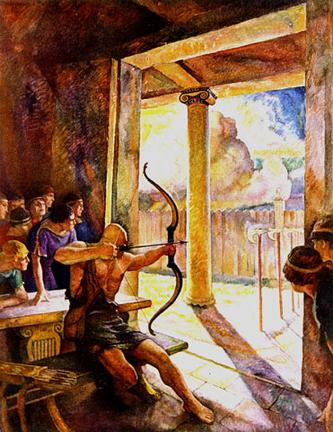
Paul Muldoon is a poet I probably wouldn’t have read if he weren’t Irish and even his Irishness wouldn’t have been quite enough reason to make me keep reading after the first couple of poems. They just didn’t grab me at all. But he gave a poetry reading for us when I was a graduate student in Irish Studies at Boston College and afterward I sat next to him at the reception, balancing a plate on my lap and trying not to feel too awkward. What does one say to a poet? I made small talk and think I didn’t embarrass myself too badly; but I’m sure I wasn’t at all memorable. An awkward grad student with nothing interesting to say.
Anyway, hearing him read his work made it come alive. Well, hearing a reading does, you know. So when I read his poetry I’m transported back to that evening, to the magic of his voice reading the lines. And you know I push through a poem I think I’m not going to like and find there’s magic after all.
I couldn’t resist this poem for obvious reasons.
Making the Move
by Paul Muldoon
When Ulysses braved the wine-dark sea
He left his bow with Penelope,
Who would bend for no one but himself.
I edge along the book-shelf,
Past bad Lord Byron, Raymond Chandler,
Howard Hughes; The Hidden Years,
Past Blaise Pascal, who, bound in hide,
Divined the void to his left side:
Such books as one may think one owns
Unloose themselves like stones
And clatter down into this wider gulf
Between myself and my good wife;
A primus stove, a sleeping-bag,
The bow I bought through a cataogue
When I was thirteen or fourteen
That would bend, and break, for anyone,
Its boyish length of maple upon maple
Unseasoned and unsupple.
Were I embarking on that wine-dark sea
I would bring my bow along with me.






Wow- this so rich and layered. What a terrific poem. I didn’t know the poet at all- thank you! I like ‘Divined the void to his left side’ and the title puns, and well, the whole thing.
But would he really take his bow with him? We think with hindsight we might not make the ‘mistakes’ of the past, but actually it’s those decisions made with passion and youth heroism that made Ulysses that person he was. Loosing, finding, divining, having your heart broken is what seasons the bow… The crazy stuff we do for love is our glory (though simultaneously disastrous).
And I love ‘wine dark sea’. Prefer it to James Joyce’s ‘snot-green sea’ in his Ulysses, memorable though it is!
Yeah, I’m not Paul Muldoon is very well known outside of Ireland and Irish study circles.
Is he talking about hindsight? I read “were I” as referring to the poet’s present not the past. After all Odysseus/Ulysses leaves Penelope not when he’s a youth, but when he’s already a father and established as king of Ithaka.
I do like the ambiguity in the first line of the second stanza. Does “who” refer to the bow or Penelope? Interestingly, the bow becomes a metaphor for the wife herself and not for the man. Ulysses wife, like his bow, is steadfast and will bend for no other man. The implication seems to be that Muldoon’s wife is not. That she’s responsible for the gulf between them, for his moving out. And so perhaps the declaration that he’d take his wife with him is an acknowledgement that unlike Ulysses who can stray for twenty years and find steadfast Penelope waiting, Muldoon had better keep his wife closer. Carrying out the analogy, his bow is unseasoned, unsupple, would bend, even break, for anyone. So it would seem that his caution is well-founded, based on experience. His wife is no Penelope.
And yea, I do love the wine-dark sea. But I do think that Joyce’s tribute to Homer’s epithet has its own charm. It’s so very Joyce.
Just returned to this! Oh, how interesting. I jumped to the assumption that the bow was his heart. Whereas Ulysses’ heart was safe with Penelope, his in contrast through youthful misadventures got broken. When he says he would bring his bow along with him I thought he maybe meant in order to save himself the pain of heart-break, ie he would not give his heart away. Hence my query; while one might be tempted, heroes (and poets?) do give all. But yes, Ulysses wasn’t a youth.